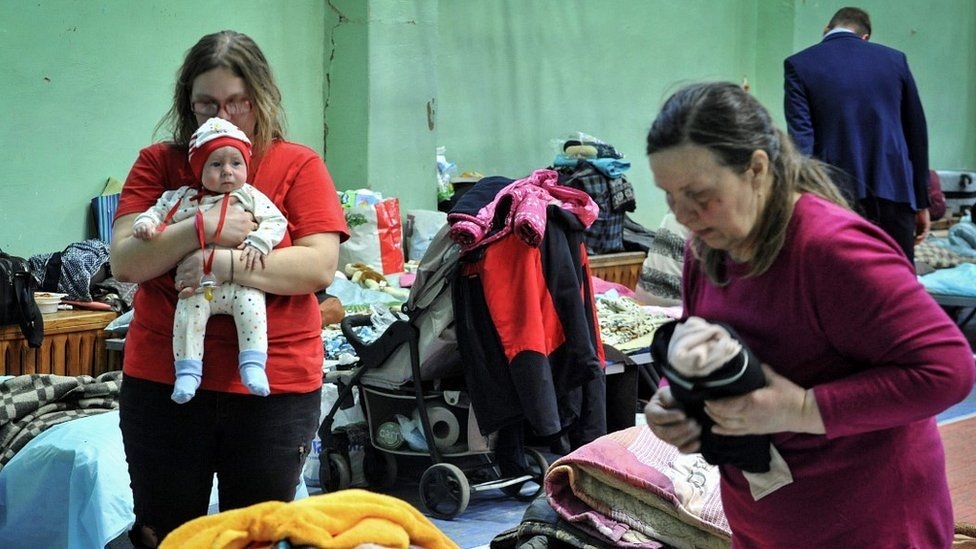Russia transfers thousands of Mariupol civilians to its territory

Ukraine has accused Russia of forcibly relocating thousands of civilians from Mariupol, the strategic port city devastated by Russian shelling.
Russia is housing an estimated 5,000 at a temporary camp in Bezimenne, east of Mariupol, seen in satellite images.
Ukraine's Deputy Prime Minister Iryna Vereshchuk said 40,000 had been moved from Ukraine to Russian-held territory without any coordination with Kyiv.
A Mariupol refugee, now in Russia, said: "All of us were taken forcibly".
Some Ukrainian officials describe Russia's actions as "deportations" to "filtration camps" - an echo of Russia's war in Chechnya, when thousands of Chechens were brutally interrogated in makeshift camps and many disappeared.
It is an internationally-recognised abuse of human rights for a warring party to deport civilians to its territory.
While 140,000 civilians have managed to escape from besieged Mariupol, another 170,000 are still trapped there, the city council says. Relentless Russian shelling for more than three weeks has reduced the city to ruins, its terrified civilians hiding in cellars, desperately short of water, food and medicine.
The BBC is unable to independently verify the figures for civilians evacuated from Mariupol, or the number killed there.
Relatively few Mariupol civilians have fled via the humanitarian corridors agreed by both sides. Ukraine says Russian troops continued shelling the evacuation routes, which were supposed to be safe.
In parts of Mariupol captured by the Russians, reports suggest the civilians - hungry, thirsty and often sick - have little choice but to head out to Russian-controlled areas and Russia itself.
Matt Morris, spokesperson for the International Committee of the Red Cross (ICRC), said the ICRC could only evacuate civilians and deliver aid if Russia and Ukraine provided safety guarantees, and that had not happened yet, though the ICRC was speaking to both sides.
"The sides have to be the guarantors and have an agreement to allow safe passage. They have to publicise the route and allow plenty of time for people to get out," he told the BBC.
International humanitarian law, he said, "requires that people should be allowed to leave, but should not be forced to leave". Warring sides should allow aid in and let people stay if they want to, he explained.
"It's a desperate situation in Mariupol - we've called on all sides to facilitate safe access in and out," he said, adding: "We don't have a team currently able to access."
